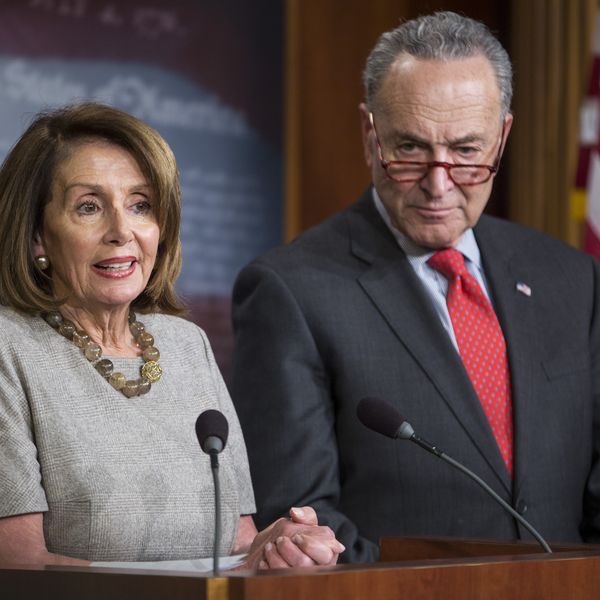Donald Trump and Hillary Clinton - the two presumptuous if not yet presumptive leaders for their party's presidential nomination - won big on Tuesday. Trump swept all five states (Connecticut, Delaware, Maryland, Pennsylvania, and Rhode Island) by double digits. Clinton won four of five, three convincingly, one (Connecticut) narrowly. The race is not over, but each is far closer to winning the nomination of her and his party.
Trump trounced his opponents, winning virtually all of the delegates up for grabs last night. Analysts suggest that victories in two more states where he is leading in the polls, Indiana and California, will suffice to take him over the top. In any case, he is a lock to go into the convention with such a formidable lead in votes and pledged delegates that the party would be committing seppuku to deny him the nomination.
The Donald is the choice of Republicans to lead their party. Hard to believe. The foul cauldron of zealotry, racism, and obstruction with which Republicans greeted Barack Obama has spewed out its poisonous offspring. Trump, of course, greeted his victory with a complaint about how unfair the process is, and a classless and characteristically sexist jibe at Clinton. ("If Hillary Clinton were a man, I don't think she'd get 5 percent of the vote")
Clinton surrogates fret about the threat posed by Trump, urging Sanders to stop challenging the former secretary of state. But, in reality, Caligula's ass could beat Trump in the fall. Nearly one of four Republicans voting last night say that they won't vote for him. Americans are looking for change, but they are not gong to elect Donald Trump president of the United States.
Sanders won Rhode Island, the only state that had an open primary, allowing independents to vote. The others were limited to registered Democrats only, effectively blocking independent and many young voters from casting a ballot.
The Clinton-Sanders contests adhered to the pattern set once Sanders surged into a competitive position. Sanders won young voters by staggering margins (83% to 17 for those under 29 in Connecticut). Clinton won the elderly big. In Democratic primaries - particularly primaries closed to independents - boomers vote in larger numbers than millennials. Clinton continues to dominate among people of color; Sanders edges her among white voters. Sanders sweeps up independents. In affluent Connecticut, Sanders won a majority of those voters earning less than $100,000 a year; Clinton won those making more, winning 67%-32% among those making more than $200,000 who were a stunning 14% of the vote. The top 5% strike back.
Clinton leads among voters most concerned about experience and electability; Sanders among those most concerned about honesty and trustworthiness and a candidate who cares about them. Clinton also leads among Democrats who want to continue Obama's policies. Eighty-six percent of Pennsylvania Democrats said they were worried or very worried about the direction of the economy, by far the most important issue to them. Yet they voted in large numbers for Clinton, who has made herself - for better or worse - the candidate of continuity.
What does Bernie Want?
Sanders will carry his battle into the convention. His supporters demand no less. Yesterday, as voters were going to the polls, the Sanders campaign sent out a message to supporters reminding them of how far he has come. [Reordered by author.]
"Our path to the nomination was never narrower than the day I announced my candidacy... When we started this campaign almost a year ago today, people called us "fringe." They said our ideas were too radical. But what we have done throughout this campaign is show that when people stand together we can take on a billionaire class and the candidates they fund.
"The political establishment wants us to go away so they can begin their march to the center," he went on, "but our fight for change is just getting started."
"I will not stop fighting for an America where no one who works 40 hours a week lives in poverty, where health care is a right for all Americans, where kids of all backgrounds can go to college without crushing debt, where there is no bank too big to fail, no banker too powerful to jail, and we've reclaimed our democracy from the billionaire class."
In a time when voters are looking for change, Democrats are moving towards nominating a status quo candidate. The media will portray the race as over. They'll press Sanders on why he's going on. The Clinton chorus will bray at every word of criticism of the secretary. But Sanders and his supporters have never been about business as usual. He is building a movement, educating a new generation, driving a message that gains in force as more people hear it. He will and should drive that message and agenda into the Democratic convention and into its platform. The road to the nomination has gotten ever more steep, but his challenge to the direction of the party and the country will continue to build.
And contrary to the complaints from the Clinton campaign and allies, voters get this. Across the primaries, voters - particularly Clinton voters - said that the fight in the Democratic Party was energizing the party, not dividing it.
In a time when voters are looking for change, Democrats are moving towards nominating a status quo candidate. Clinton has been part of the Washington establishment for over a quarter century. She's a committed interventionist at a time when Americans are tired of endless wars. She seems constitutionally unable to put forth a large, compelling vision of where she would like to take the country. Sanders, his campaign scorned from the start, has come from nowhere to run even with her in national party polls. But she's won the most votes, and seems increasingly likely to win the most pledged delegates.
Even her smartest supporters worry about the absence of vision. Sen. Chris Murphy of Connecticut, who stumped with Clinton, noted she had work to do to reach an electorate in a "revolutionary mood." "You are not going to win this general election by proposing incremental changes," Mr. Murphy said, adding that he hoped Mrs. Clinton "doesn't shy away from proposing some big ideas to try to reorder the country, to the benefit of those that are hurting."
Neither Clinton nor Sanders nor any Democrat with a pulse is likely to lose against Trump, whether they offer a "big idea" or not. But electing a candidate whose hallmark is continuity and whose promise is incremental change will fail to meet the challenge of this time. And the movement that Sanders has begun must continue to build, or Trump's faux populism will seem comic compared to the vicious right-wing reaction that will seek to fill the void.
Down ballot, the results were mixed for progressives. Donna Edwards, who would have become a leading light in the Sanders-Warren wing of the Democratic Party, lost in the Maryland Senate primary to Chris Van Hollen, the establishment choice. House progressives gained a future star when Jamie Raskin won the primary - defeating two deep-pocket millionaires in the most expensive primary in the country - for the House seat Van Hollen vacated. Raskin's race provided new evidence that small-d democratic mobilization can counter the influence of massive sums of money. The Congressional Progressive Congress will come out of 2016 with new members and new energy.



